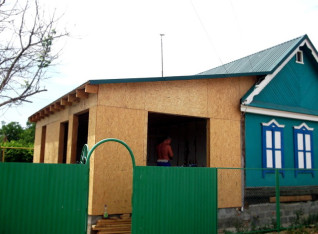Temporary registration of place of residence: legal nuances in a changing real estate environment
In a world where mobility is becoming the norm and real estate is constantly being transformed, temporary registration of residence takes on particular importance. This is not just a formality, but an important legal act that protects your rights during the transition period. However, in realities where apartments are being redeveloped and buildings need to be legalized, this process can become a real challenge.
Home redevelopment is a trend that is not losing popularity. Owners seek to optimize space by combining rooms or changing their functions. But what if you rent such an apartment and require temporary registration? It is important to understand here: any redevelopment requires official registration. Legalization of redevelopment is a process that includes obtaining permits and preparing technical documentation. Without this, the apartment does not legally correspond to its actual condition, which may complicate your registration.
As a tenant, you are not responsible for processing the redevelopment, but you have the right to check its status. Ask the owner to provide documents confirming the legality of the changes. If you don't have them, you take a risk: in the event of a utility inspection or emergency, your temporary registration may be questioned.
A separate challenge is temporary registration in buildings that themselves require legalization. These could be old buildings without proper documentation or new buildings built with violations. Legalization of a building is a complex process, including technical examination and entry of the object into the real estate register. Without this, the building legally “does not exist,” which makes any registration in it impossible.
This is especially true for private houses in the suburbs or villages. Often such buildings stand for years without official registration. Verification is important here: before agreeing to a lease with temporary registration, ask for documents confirming the legalization of the building. Otherwise, you risk not only the inability to register, but also problems with receiving targeted assistance or calling emergency services.
An interesting aspect is temporary registration in real estate acquired through non-traditional schemes. For example, acquiring ownership by acquisitive prescription is an opportunity to become the legal owner of property that a person has owned openly and in good faith for a long time. But this process requires a court decision and registration of ownership. Until these procedures are completed, any registration, even temporary, will be problematic.
In rural areas, houses are often offered for rent on land shares. Here the question of registering a share as a place of residence arises. But a share is, first of all, a plot of land. To be able to register, it is necessary that the building on this land be officially recognized as residential and entered into the real estate register. Without this, registration of the share as an address for temporary registration is impossible.
Separately, situations with superstructures and extensions should be considered. In search of additional income, owners often expand their houses: adding floors, attics or new rooms. You may be offered just such a space for rent. But here it is important: legalizing a superstructure or extension is not just construction work. You need to obtain permits, comply with regulations and register the new area.
Decorating a superstructure or extension is the only way for new masters to become an official part of the house. Without this, from a legal point of view, such space “does not exist.” Temporary registration in an unauthorized add-on or extension is not only impossible, but can get you into trouble. For example, in the event of a fire, the insurance company may refuse to pay because you officially lived “in the air.”
It is important to understand that temporary registration is not just an entry in documents. This is recognition of your right to temporarily reside at a specific address, and this right is based on the legality of the property itself. When it comes to atypical real estate - apartments for redevelopment, unregistered houses, superstructures - the process becomes more complicated.
In some cases, landlords offer to bypass the system: they say, live without registration or register with friends. But this is not a solution. Without temporary registration, you lose access to many services: from medical care to banking products. And fictitious registration can lead to legal consequences both for you and for those who helped you.
The positive thing is that today the registration and legalization processes have become more structured. There are clear algorithms for the legalization of buildings, superstructures, and extensions. There are specialized law firms that help with redevelopment. Therefore, if you are faced with a situation where the desired property needs to be legalized, do not refuse immediately. Talk to the owner about legalization options.
Another aspect is duration of processes. Legalization of redevelopment or registration of a building is not a quick procedure. They can take months. Therefore, if you are considering a long-term rental (for example, for a year or more) in a property that needs legalization, it makes sense to wait until these processes are completed. Otherwise, you will spend most of your stay without officially registering.
To summarize, temporary registration of place of residence in modern realities is more than an administrative procedure. This is a guarantee of your rights and safety during your stay. In a world where real estate is constantly changing - from apartment remodels to additions - it is important to be vigilant. Check the status of housing, request legalization and registration documents. Don't make compromises that could jeopardize your registration. In the end, your temporary housing should not only be comfortable, but also legally safe.




































